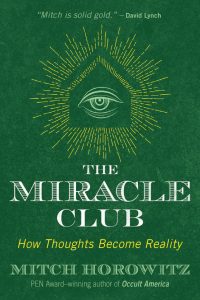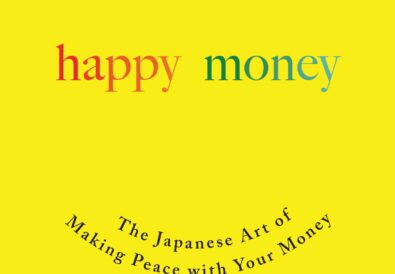I had never dreamed of wealth or wanted to be surrounded by fancy things. I believe in labor unions, moderately redistributive tax policies, and personal thrift—not gross consumption. But there is something vitally important to earning a good living, and that fact cannot be hidden or ignored. Nor can this: Your mind is a creative agency, and the thoughts with which you impress it contribute to the actualized events of your existence—including money.
This statement is absolutely true and should never be neglected. I have tested and verified it within the laboratory of my existence, and I am writing these words at age fifty. If you want money, I ask you to wholly embrace it as true. This necessary act of conviction will not, in any case, lead you to rash behavior. It does not suggest neglecting daily obligations or loosening your hands on the plow of effort.
To have wealth you must first want wealth. Do you? Or do you consider money gauche or unimportant? Whether you are an artist or activist, soldier or craftsman, you must see wealth as a necessary and vital facet of your life. You can do far more good with money than without. You must recognize money as a healthful part of existence. Nothing is more duplicitous than someone who runs down acquisitiveness while enjoying money that comes from well-off parents, a situation typical of many in the New York media world in which I work. Or, a public persona who scoffs outwardly at money while employing sticky-fingered lawyers, agents, or other parties to comb the earth for money for them. As a publisher I’ve seen it many times. By contrast, strong people admit that they want money, among other goals, and in so doing are neither in the service of falsehood nor shame.
The same holds true of your ambitions in the world. Spiritually minded people, and all others, should honor their ambitions and pursue them openly and transparently, with due respect to colleagues and competitors. Yet this is frowned upon in many reaches of the contemporary alternative spiritual and New Age cultures. Within these worlds, we recycle ideas from the Vedic and Buddhist traditions and use them to prop up unexamined ideas about the need for nonattachment, transcendence of the material, and the value of unseen things. Writers who can’t decipher a word of Sanskrit, Tibetan, or ancient Japanese— the languages that have conveyed these ideas from within the sacred traditions— rely upon a chain of secondary sources, often many times removed from their inception, to echo concepts like nonattachment and nonidentification. We are told that the ego-self grasps at illusions and fleeting pleasures, formulating a false sense of identity around desires, ambitions, attachments, and the need for security.
I question whether this interpretation is accurate. In recently working with the Shanghai-based translator of a Chinese publication of my One Simple Idea, I found, to my chagrin and bemusement, that Buddhist concepts I thought that I, as a Westerner, had understood were, in my retelling, completely alien to her experience as someone raised within non-Western religious structures. Our popularized notions of the Eastern theology of nonattachment are cherrypicked from religious structures that were, in their originating cultures, highly stratified and hierarchical. Hinduism and Buddhism, moreover, addressed the lives of ancient people for whom distinctions of caste, class, and status were largely predetermined, and who would have regarded cultural mobility almost as unlikely as space travel. There were social as well as spiritual reasons why worldly transcendence beckoned.
Shorn of their cultural origins, concepts of nonattachment today sound tidy and persuasive to Westerners who understandably want something more than the race to the top. (Or, just as often, who fear they may not reach the top and thus desire an alternate set of values.) But this transplanted outlook is often ill fitting and brings no more lasting satisfaction to the modern Westerner than so-called ego gratifications. This kind of ersatz “Easternism” has been with us for several decades, most recently popularized by writers such as Eckhart Tolle and Michael A. Singer, yet it has not provided Westerners with a satisfying response to materialism because it often seeks to divert the individual from the very direction in which he may find meaning, which is toward the compass point of achievement.
Some of my spiritual friends and colleagues have told me that I am too outwardly focused. Isn’t the true path, they ask, marked by a sense of detachment from the outer? Doesn’t awareness come from within? Isn’t there, finally, a Higher Self or essence from which we can more authentically live, rather than succumb to the illusory goals of the lower self or ego, which directs us toward career, trinkets, and pleasure?
I have been on the spiritual path for many years. I have sought understanding within both mainstream and esoteric movements. My conviction is that the true nature of life is to be generative. I believe that in order to be happy, human beings must exercise their fullest range of abilities—including the exertions of outer achievement.
Seekers too often divide, and implicitly condemn and confuse, their efforts by relying on terms like ego and essence, as though one is good and other bad (while neither actually exists beyond the conceptual.) A teacher of mine once joked: “If we like something in ourselves, then we say it comes from essence; if we dislike it, we say it comes from ego.” I contend that these and related concepts, like attachment/nonattachment and identification/nonidentification, fail to address the needs, psychology, and experience of the contemporary Western seeker. And, in fact, such concepts do not necessarily reflect the outlook of some of the most dynamic recent thinkers from the Vedic tradition, including the Maharishi Mahesh Yogi (1918–2008) and Jiddu Krishnamurti (1895–1986).
Let me be clear: The inner search and the search for self-expression are matters of extraordinary importance—and extraordinary mystery. I believe that the simplest and most resounding truth on the question of the inner life and attainment appears in the dictum of Christ: “Render unto Caesar what is Caesar’s and render unto God what is God’s.” We are products of both worlds: the seen and the unseen. There is no reason to suppose that our efforts or energies are better dedicated to one or the other. Both exist. Both have veritable claims on us.
I do not view nonattachment as a workable goal for those of us raised in the West, and elsewhere, today. Rather, I believe that the ethical pursuit of achievement holds greater depth, and summons more from within our inner natures, than we may realize. “Satisfaction with our lot,” Emerson wrote in his journals on July 28, 1826, “is not consistent with the intentions of God & with our nature. It is our nature to aim at change, at improvement, at perfection.”
I recently read a book that I recalled my mother borrowing from our local library when I was eight or nine years old: Yes I Can, the autobiography of entertainer Sammy Davis, Jr., published in 1965, the year of my birth. In the public mind, Davis is remembered as a flashy, somewhat self-parodying Vegas performer—but decades before his tuxedoed stage shows, Davis was an innovative prodigy, raised on the vaudeville circuit, where he was subjected to the brutality, insults, and physical assaults that often characterized black life under Jim Crow. These threats followed him into the army during World War II, where he used his skills as an entertainer to mitigate some of the racism around him—though indignities and violence always snared him at unexpected moments.
When Davis left the military, he made an inner vow that shaped the rest of his life:
I’d learned a lot in the army and I knew that above all things in the world I had to become so big, so strong, so important, that those people and their hatred could never touch me. My talent was the only thing that made me a little different from everybody else, and it was all that I could hope would shield me because I was different. I’d weighed it all, over and over again: What have I got? No looks, no money, no education. Just talent. Where do I want to go? I want to be treated well. I want people to like me, and to be decent to me. How do I get there? There’s only one way I can do it with what I have to work with. I’ve got to be a star! I have to be a star like another man has to breathe.
I challenge anyone to question the drive, purpose, and canniness of Davis’s words—not to challenge them from a meditation cushion or living room sofa, but from within the onrush of lived experience. Davis was viewing his life from a pinnacle of clarity. Would his worldly attachments and aspirations cause him pain? He was already in pain. At the very least they would relieve certain financial and social burdens—and probably something more. Would his attainment of fame ease his inner anguish? I think he owed it to his existence, as you do to yours, to find out. Whatever your goal may be, you cannot renounce what you haven’t attained. So to conclude that success, in whatever form is not meaningful, is just conjecture without first verifying it.
Do not be afraid of your aims, or slice and dice them with melancholic pondering. Find them—and act on them. By living as a productive being, in the fullest sense, you honor the nature of your existence and perform acts of generativity toward others. If you are able, you may then determine from the vantage point of experience and attainment whether your aim responded to an inner need of profound meaning.
Excerpted from The Miracle Club: How Thoughts Become Reality by Mitch Horowitz © 2018 Inner Traditions. Printed with permission from the publisher, Inner Traditions International. www.InnerTraditions.com

 Mitch Horowitz is a PEN Awardwinning historian, longtime publishing executive, and a leading New Thought commentator with bylines in The New York Times, Time, Politico, Salon, and The Wall Street Journal and media appearances on Dateline NBC, CBS Sunday Morning, All Things Considered, and Coast to Coast AM. He is the author of several books, including Occult America and One Simple Idea.
Mitch Horowitz is a PEN Awardwinning historian, longtime publishing executive, and a leading New Thought commentator with bylines in The New York Times, Time, Politico, Salon, and The Wall Street Journal and media appearances on Dateline NBC, CBS Sunday Morning, All Things Considered, and Coast to Coast AM. He is the author of several books, including Occult America and One Simple Idea.




















